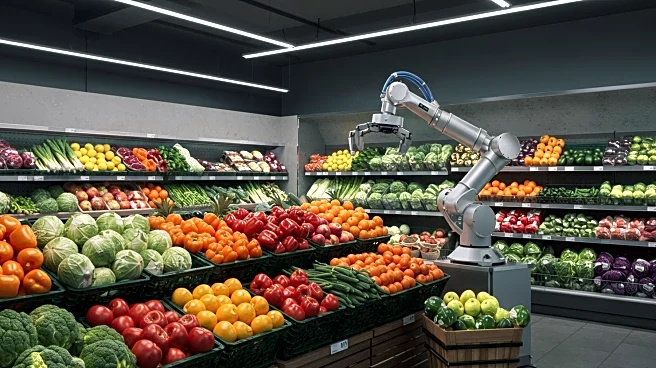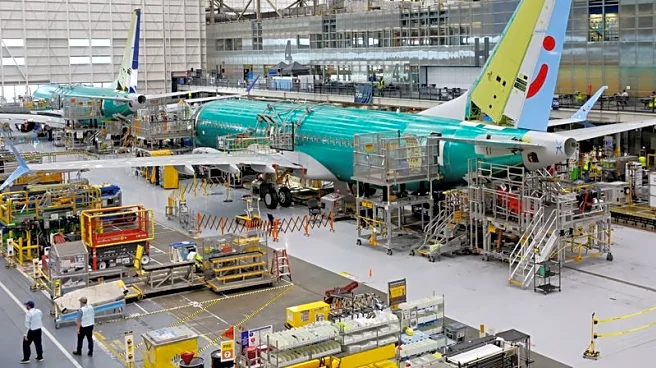What is the story about?
What's Happening?
The grocery industry is increasingly adopting artificial intelligence (AI) to address challenges such as tight margins, unpredictable demand, and sustainability pressures. AI technologies are being utilized to enhance precision in forecasting perishable demand, automate ordering processes, and monitor inventory in real-time. These advancements are projected to unlock $136 billion in value by 2030, with significant gains in supply chain and logistics. AI-powered platforms are helping retailers cut food waste by over 30% on average, while dynamic pricing engines adjust prices based on shelf life. Additionally, AI systems are integrating workflows to create an intelligent ecosystem that improves efficiency and reduces spoilage.
Why It's Important?
The integration of AI in the grocery sector is crucial for improving operational efficiency and sustainability. By reducing food waste and optimizing supply chains, grocers can enhance their profit margins and customer satisfaction. The technology also supports compliance with regulatory requirements around sustainability and traceability, which are increasingly important in the industry. As AI adoption becomes more widespread, retailers who leverage data-driven decisions and connected systems stand to gain a competitive edge. This shift not only benefits businesses but also contributes to environmental conservation by minimizing waste.
What's Next?
For AI to deliver its full potential in the grocery industry, retailers need to prioritize data-driven strategies and integrate systems across workflows. Overcoming barriers such as technological clarity and short-term cost focus will be essential for widespread adoption. As grocers continue to recognize the strategic value of AI, the industry is likely to see a transformation in business models, with sustainability becoming a key driver of growth. Future developments may include enhanced AI capabilities for real-time decision-making and further integration of smart packaging and redistribution tools.
Beyond the Headlines
The adoption of AI in grocery stores is not just a technological upgrade but a shift in business models. By treating sustainability as a strategic lever rather than a compliance burden, grocers can reduce waste, improve margins, and future-proof their operations. This approach aligns with broader societal goals of reducing environmental impact and promoting sustainable practices. As AI technologies evolve, they may also influence consumer behavior by offering fresher products and more efficient shopping experiences.


















